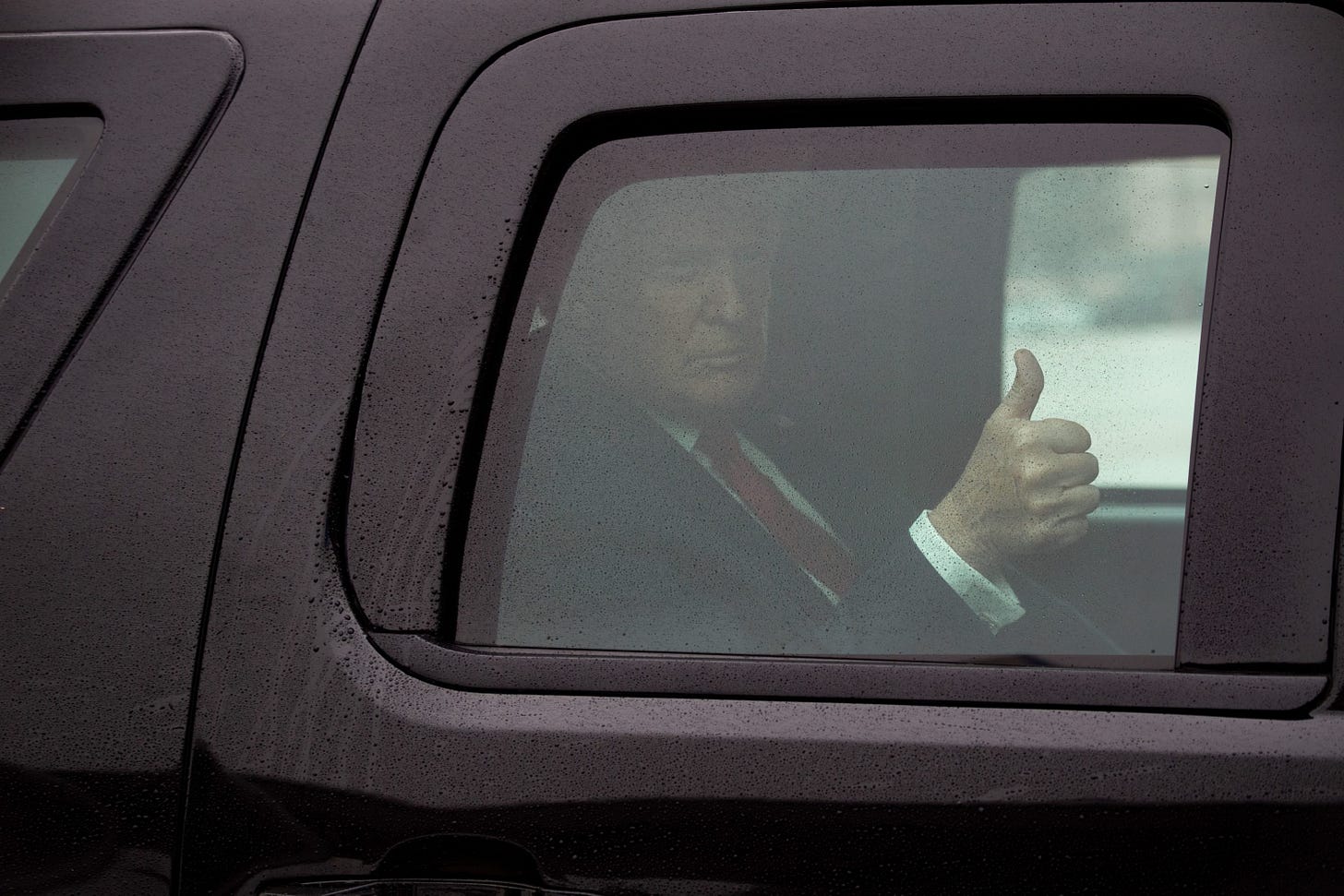The Trouble with Trump’s Gag Orders
His demand that government employees—like the doctors at Walter Reed—sign nondisclosure agreements is legally dubious and dangerous as a matter of policy.

The pull-out-all-the-stops efforts of medical professionals at Walter Reed National Military Medical Center to stave off serious COVID-related illness for President Trump seemed to have worked. The White House physician has announced, albeit rather cryptically, that, barely 10 days after the president’s emergency hospitalization, he is no longer contagious and is ready to hit the campaign trail amid thousands of maskless followers. But for the folks at Walter Reed, excellent care is not enough for Trump. Many were reportedly asked to sign nondisclosure agreements (NDAs) last November, when he was taken there for obscure reasons and on what appeared to be an emergency basis.
Is this legal?
Well, like all things Trump, the relevant question is not whether the law allows him to gag military doctors and nurses, but whether there are consequences for his attempts to do so. Without consequences, he can do as he pleases—as we’ve seen ad nauseam for four years and counting.
The bottom line is that government NDAs to protect classified information and private trade secrets are common and legitimate. But NDAs aimed at muzzling people from speaking about anything relating to Donald Trump are not legally authorized, and in fact probably violate both whistleblower laws and the First Amendment.
Still, even if the NDAs are not legally enforceable, the fear of retribution from Team Trump is enough to keep people quiet—which is why Congress must step up and pass a new law that bans this practice outright, with a private right of action to sue the government for money damages and injunctive relief if a future administration were to pick up the Trumpian baton in this regard.
The Constitution does not contain any language requiring transparency in government. Congress has passed a number of statutes ensuring that government actions see the light of day, most prominently the Freedom of Information Act (FOIA), which affords regular people—and the press—the ability to petition the federal government for disclosure of records. (To the extent that private citizens like Rudy Giuliani do the work of the federal government by, say, acting as faux diplomats on personal missions for Trump, their records are not covered by the FOIA.)
The FOIA contains a number of exemptions that allow the government to keep certain information confidential, including information that’s properly classified in the interests of national security, commercial trade secrets, some private personnel records, and information that bears on the deliberative or policy-making processes of an agency. It is in the public interest—for reasons of national security, competitiveness, individual privacy, and so on—to protect these kinds of information.
Courts addressing NDAs signed by former federal employees have confirmed this very concept. In McGehee v. Casey, for example, the U.S. Court of Appeals for the D.C. Circuit held in 1983 that a CIA employee retains “a strong First Amendment interest in ensuring that CIA censorship of his [work] results from a proper classification of the censored portions.” But the court found that if an NDA “does not extend to unclassified materials,” the CIA could not censor such material “contractually or otherwise.”
Consider President Trump’s NDAs, which reportedly include language barring White House employees from sharing any information they obtained in the building. The agreement proffered to former Trump adviser Omarosa Manigault Newman, as she described it in her White House memoir, would have banned her from discussing any derogatory information about the Trump family as well as that of Vice President Mike Pence. In 2016, Trump campaign employees signed NDAs with language so draconian that any disclosure of “any information with respect to the personal life, political affairs, and/or business affairs of Mr. Trump or of any Family Member” could trigger a $1.5 million claim—a sum that the campaign sought against a former campaign worker for allegedly violating the NDA.
To be sure, as a matter of routine contract law, courts will refuse to enforce agreements that are so one-sided as to violate foundational notions of good public policy. And NDAs are generally construed narrowly by courts even in purely private-sector settings—meaning that the employee’s ability to speak gets the benefit of the doubt. But litigation is costly.
For federal employees, Congress has gone one step further to protect employees’ right to speak. The Whistleblower Protection Act (WPA) “prohibits individuals in positions of authority from taking a ‘personnel action’ against a government employee in certain circumstances, particularly because of any disclosure of information by an employee . . . which the employee . . . reasonably believes evidences . . . a substantial and specific danger to public health or safety.” So if a federal employee witnessing Trump being Trump has concerns about the health or safety of the public as a result, federal law protects that employee’s ability to safely make the threat known—regardless of Trump’s NDA.
But again, as Donald Trump knows from decades of bullying employees and contractors in the private sector, the threat of legal action—even if frivolous—is often enough to motivate people to keep quiet, even if that means forgoing their First Amendment rights. As of 2016, Trump had been involved in a whopping 3,500 lawsuits. After nearly four years in the White House, it’s even more abundantly clear that Trump and his cronies will stoop to inconceivable lows in order to vindicate him. With 215,000 Americans dead from a virus that did not claim Donald Trump’s life, the medical staffers at Walter Reed have much larger personal and professional priorities than jousting with Trump in the courts over the terms of a piece of paper.
Under a Biden administration, a functioning Congress needs to amend the law to outright ban federal gag orders with zero public-policy justification. In a democracy, the public has a right to know what its government is up to.


